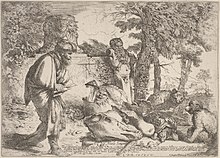The item
on the pictures is the one that you will receive. Look carrefully and
judge for your self for the quallity and the grade.
S&h is $19.90 for all the world.
If your country isn't on my shipping list,please contact
me. If you are having problems with the ebay system or adding items to
card so you can combine multiple purchases or any other question,please
contact me whenever you like.
I have many other items not listed.
All from my personal collection.
If you want to see,just ask!
YOU CAN BID WITH CONFIDENCE.
SELLER WITH 100% POSITIVE FEEDBACK.
GREECE 200 EURO 2017 DIOGENIS
Original Proof coin from the National bank of Greece.
1000 Coins Mintage.
GOLD 916,66‰.
7,9881 Grams
22,10 mm Diameter
Comes with Certificate Of Authenticity (C.O.A.) and Original Box.
Υλικό: χρυσός 916,66‰ Au, 53‰Ag, 30‰Cu
Βάρος: 7,9881 gr
Διάμετρος: 22,10 mm
Μορφή στεφάνης: λεία
Ποσότητα: 1.000 τεμάχια
Ποιότητα τύπωσης: Proof
 Diogenes (1882) by John William Waterhouse | |
| Born | c. 412 BC |
| Died | 323 BC (aged roughly 89) |
| Era | Ancient Greek philosophy |
| Region | Western philosophy |
| School | Cynicism |
Main interests | Asceticism, Cynicism |
Notable ideas | |
Diogenes (/daɪˈɒdʒɪniːz/ dy-OJ-in-eez; Ancient Greek: Διογένης, romanized: Diogénēs [di.oɡénɛ͜ɛs]), also known as Diogenes the Cynic (Διογένης ὁ Κυνικός, Diogénēs ho Kynikós), was a Greek philosopher and one of the founders of Cynic philosophy. He was born in Sinope, an Ionian colony on the Black Sea coast of modern day Turkey,[1] in 412 or 404 BC and died at Corinth in 323 BC.[2]
Diogenes was a controversial figure. His father minted coins for a living, and Diogenes was banished from Sinope when he took to debasement of currency.[1] After being exiled, he moved to Athens and criticized many cultural conventions of the city. He modelled himself on the example of Heracles, and believed that virtue was better revealed in action than in theory. He used his simple lifestyle and behaviour to criticize the social values and institutions of what he saw as a corrupt, confused society. He had a reputation for sleeping and eating wherever he chose in a highly non-traditional fashion, and took to toughening himself against nature. He declared himself a cosmopolitan and a citizen of the world rather than claiming allegiance to just one place. There are many tales about his dog Antisthenes' footsteps and becoming his "faithful hound".[3]
Diogenes made a virtue of poverty. He begged for a living and often slept in a large ceramic jar, or pithos, in the marketplace.[4] He became notorious for his philosophical stunts, such as carrying a lamp during the day, claiming to be looking for a man (often rendered in English as "looking for an honest man"). He criticized Plato, disputed his interpretation of Socrates, and sabotaged his lectures, sometimes distracting listeners by bringing food and eating during the discussions. Diogenes was also noted for having mocked Alexander the Great, both in public and to his face when he visited Corinth in 336 BC.[5][6][7]
Diogenes was captured by pirates and sold into slavery, eventually settling in Corinth. There he passed his philosophy of Cynicism to Crates, who taught it to Zeno of Citium, who fashioned it into the school of Stoicism, one of the most enduring schools of Greek philosophy. No writings of Diogenes survive but there are some details of his life from anecdotes (chreia), especially from Diogenes Laërtius' book Lives and Opinions of Eminent Philosophers and some other sources.[8]
